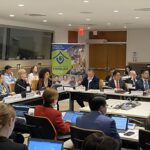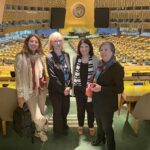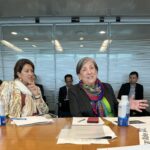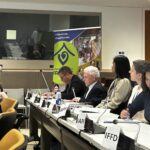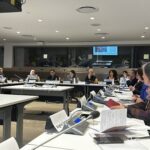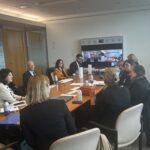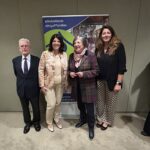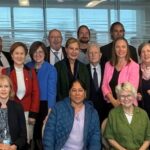Newsletter July 2024
Dear friends,
We are already at the gates of summer, but before enjoying a few days of rest, we at HRF have an important engagement, our sixth Experts Meeting ‘Nurturing Healthy Relationships at Home and Work’ this time in Barcelona at the IESE Business School on 8 -9 July.
This will be a joint meeting with the International Centre for Work and Family and the Social Trends Institute which provides the funding for the project. The aim is to explore with invited academic and professional experts the contribution of home to the workplace and the ways in which these mutual relationships can be fostered. Here is the Program.
But let´s review the work done in the last months, you will find below details and content.

HRF AT THE UNITED NATIONS. We are very grateful for our presence at the United Nations to celebrate the 30th anniversary of the family with the opening speech of our director Professor Gamal Abdelmonem and the participation of our CEO Mercedes Jaureguibeitia. Reports, Videos and Pictures
HRF AT THE HOUSE OF LORDS. At the same time, but in the UK, our Director of Development, Susan Peatfield attended a discussion opened by the think tank Civitas at the House of Lords on parenting and the need for parents to receive help in this vital role.
Read the whole debate here
HRF ON TELEVISION. And, our Head of TV Communications talking about the importance of the home in the development of the person with the President of Aldeas Infantiles on the Spanish channel TRECE.
Click on here to watch the Tv Program
In our website we have two new working papers already published:
1. Care in the Home, Care of the Common Home, presented by Mercedes Jaureguibeitia at the United Nations. Read More
2. The Home: Places, Relationships and Care, written by Prof. Antonio Argandoña and recently published in the VII Best Practices Guide of the Family and Business Reconciliation Centre (CONFyE) of IAE Business School in Argentina. Read the Paper
May I take this opportunity to thank you for your continuing interest and support and to wish you and your families a very happy and restorative summer.
Kind regards,
Bryan K. Sanderson, CBE
